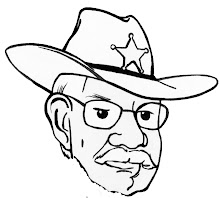Anybody who saw the movie “Saving Private Ryan” should have known Jack Truluck. On June 6, 1944, Jack piloted one of the landing craft that dropped our guys on Omaha Beach at Normandy. After he offloaded his “passengers” and before he could back away from the shoreline, a German artillery shell blew up his Higgins boat.
Jack’s only choice was to swim ashore. Unarmed and with bullets flying everywhere, Jack crawled over dead bodies in the surf. From behind him, he heard the familiar high pitched whine of another landing craft engine.
Turning around, he saw a friend piloting a Higgins boat, getting ready to pull away from the beach. The friend signaled Jack to swim out toward him. Jack did just that but as he boarded his friend’s landing craft, another German shell blew that boat into little pieces.
Here’s Jack, for the second time that day, making an impromptu landing on the beach at Normandy. “Nobody should have to do this thing more than once,” Jack thought of his bizarre wartime experience. Eventually he was evacuated to a hospital ship. His wounds (a fractured arm) proved to be non-life threatening.
Back at home, after the war, Jack pursued a career as a newspaperman. When I knew Jack he was an investigative reporter for The State newspaper in Columbia, S.C. By then his hair was white and there was less of it. But what a guy was Jack Truluck. His instinct for getting to the heart of a news story was unparalleled.
Jack retired from The State paper in the late Eighties, then took a job as a public information officer at the State Police Academy. During his later years, before cancer got him, Jack rarely spoke of D-Day. But when he did, he’d give you a great big Truluck smile and tell you that he never worried about anything anymore.
Hinting at that terrible day on the beach at Normandy, Jack would say: “After that everything’s gravy.”
Jack’s only choice was to swim ashore. Unarmed and with bullets flying everywhere, Jack crawled over dead bodies in the surf. From behind him, he heard the familiar high pitched whine of another landing craft engine.
Turning around, he saw a friend piloting a Higgins boat, getting ready to pull away from the beach. The friend signaled Jack to swim out toward him. Jack did just that but as he boarded his friend’s landing craft, another German shell blew that boat into little pieces.
Here’s Jack, for the second time that day, making an impromptu landing on the beach at Normandy. “Nobody should have to do this thing more than once,” Jack thought of his bizarre wartime experience. Eventually he was evacuated to a hospital ship. His wounds (a fractured arm) proved to be non-life threatening.
Back at home, after the war, Jack pursued a career as a newspaperman. When I knew Jack he was an investigative reporter for The State newspaper in Columbia, S.C. By then his hair was white and there was less of it. But what a guy was Jack Truluck. His instinct for getting to the heart of a news story was unparalleled.
Jack retired from The State paper in the late Eighties, then took a job as a public information officer at the State Police Academy. During his later years, before cancer got him, Jack rarely spoke of D-Day. But when he did, he’d give you a great big Truluck smile and tell you that he never worried about anything anymore.
Hinting at that terrible day on the beach at Normandy, Jack would say: “After that everything’s gravy.”
Look for Call The Cops! e-books in Amazon’s Kindle book store, and coming soon for Barnes & Nobles' Nook.





No comments:
Post a Comment